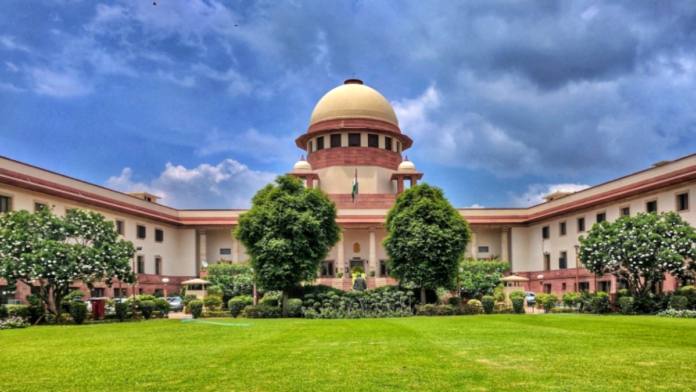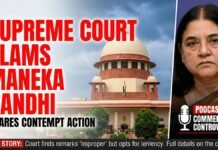
Key Points
- Supreme Court urges urgent creation of special courts for cases under special laws like UAPA and anti-terror statutes.
- Bench says lack of judicial infrastructure undermines the purpose of special laws and delays justice.
- Governments given two weeks to respond on steps for establishing such courts and assessing judicial impact.
- Case highlights: Bail plea of Naxal sympathizer in Gadchiroli attack that killed 15 policemen.
- Court warns that overburdened judges cannot ensure fair or swift trials in serious cases.
New Delhi: The Supreme Court has delivered a strong message to the Centre and state governments, emphasizing that the establishment of special courts is now essential to ensure swift justice in serious cases prosecuted under special laws. Expressing concern over the sluggish pace of trials in such cases, the apex court made clear that without dedicated judicial infrastructure, the very purpose of these laws is defeated.
A bench comprising Justices Surya Kant and N Kotiswar Singh issued the directive while hearing the bail plea of Kailash Ramchandani, an alleged Naxal supporter from Gadchiroli, Maharashtra. Ramchandani has been in jail since 2019, accused of facilitating a deadly blast that killed 15 policemen from a quick response team. The case was later transferred to the National Investigation Agency (NIA) and involves charges under multiple stringent laws, including the UAPA, Arms Act, and MCOCA.
“No Speedy Justice Without More Courts and Judges”
The Supreme Court criticized the governments for not evaluating the impact of special laws on the judicial system, noting that simply adding more cases to existing judges is not a solution. Justice Kant stated, “How can you conduct an expeditious trial in serious cases if you burden the existing judges with additional cases under special statutes? If you want to prosecute under special laws, then first create adequate judicial infrastructure and appoint judges”.
The bench highlighted that special laws-enacted to address grave offences such as terrorism, organized crime, and atrocities against marginalized groups-require equally robust judicial mechanisms for effective implementation. Without special courts and sufficient judges, trials drag on, allowing accused individuals to exploit delays for bail and undermining public confidence in the justice system.
Call for Judicial Impact Assessment
The court also questioned why the Centre and Maharashtra had not conducted a judicial impact assessment of special statutes after their enactment. Such an assessment would help determine the resources and infrastructure required to handle the increased caseload resulting from these laws.
Governments Given Two Weeks to Respond
The Supreme Court has given the Centre and Maharashtra two weeks to clarify their stance and outline concrete steps for setting up special courts with adequate infrastructure. The matter will be revisited on May 23.
Why Special Courts Matter
Special courts are designed to handle cases under specific laws-like anti-terror, anti-corruption, and anti-atrocity statutes-ensuring focused expertise, faster trials, and justice for sensitive matters. Their establishment falls under the jurisdiction of state and union territory governments, often in consultation with High Courts and the Chief Justice of India.
The Way Forward
Legal experts and the Supreme Court agree: to fulfill the legislative intent behind special laws and deliver timely justice, India must invest in more special courts, better infrastructure, and regular training for judges and court staff. This will not only speed up trials but also strengthen the rule of law and public trust in the justice system.















































